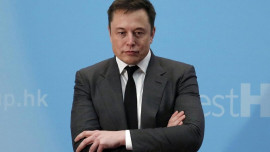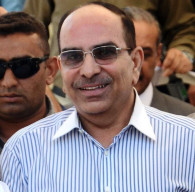
Don’t check your email first thing

Decision-making is an energy-zapping task, and our tanks are chock-full in the morning. For that reason, the way you commence your day is crucial. “Unless you’re in the emergency services field, or the matter of an hour is really critical, the best rule for email is don’t check it first unless your job is literally checking and responding to emails,” says David Rock, director of the NeuroLeadership Institute and author of Your Brain at Work: Strategies for Overcoming Distraction, Regaining Focus, and Working Smarter All Day Long. “As soon as you download your emails, your brain gets overwhelmed with information and ideas, and your personal objectives and goals start to slip out the window.” Leave it as late as possible in the day, so you can get your own work done, he suggests.
Find and protect your quality thinking time

It is critical that you determine your quality thinking time zone, which Rock defines as “time when you’re able to focus deeply and achieve what you set out to achieve in the time you expect.” For a lot of people, he finds, it’s a couple hours a week, if that. The offender — our exceedingly connected world. The solution: “Find the ideal window in your week when you can carve out focus time — to do what I call level three thinking, deeper problem solving and writing and creative work.” For everyone, this will be individual, but Rock says that generally, the best time is early in the day and early in the week such as Monday or Tuesday morning. During this time, it’s a must you turn off all distractions. Yes, Facebook must wait till late afternoon!
Reserve meetings for your low-focus time

As you find the time when your brain is most able to do ‘level three’ thinking, you may also identify times when your energy recedes and hits rock bottom. That is, in fact, the best time for you to have meetings, “when you don’t necessarily have to be at your peak,” explains Rock. Meetings require full focus, no doubt, but in a non-energised state of mind, you are more likely to bring up issues that are most imperative. Often at times, we tend to procrastinate and get off-topic when we’re beaming with energy. Positive psychology researcher Shawn Achor points out that energy wanes as sugar levels drop, so, for most people, the period after meals could also be a good time to reserve for more complex thinking.
Make a ‘to don’t’ list

Why would you need a To-Don’t list? To counteract the biggest myth of time management, which is this: If you work hard enough, organise yourself, and optimise your time, you can get it all done. Jim Collins, author of Good to Great: Why Some Companies Make the Leap… and Others Don’t thinks it’s almost impossible to get it all done and makes an interesting suggestion — you might need to start worrying less about your to-do list and focus on a “stop doing” list. Prepare a list that contains all the things you should forego and not waste your time on – ineffective tasks, unnecessary meetings, insignificant phone calls, and so on. Then place it next to your “to do” list – and stick to it.
Don’t waste precious energy multitasking

Contrary to popular belief, organisational psychologists suggest one must single-task as much as you can. Our brains can only do one conscious thing at a time, and switching between tasks not only squanders energy but multitasking can lead to decreased performance and additional mistakes. And, it saves no time at all. Multitasking between two activities takes the same amount of time as it does to do them one at a time. If you have two important things that need to get done as soon as possible and as accurately as possible, do one first and then the other.
Ponder before and after tasks

It’s important you take five minutes before every call and task or before holding or attending meetings to decide what result you wish to attain by it. This will help you know what success looks like before you start. And it will also slow time down. Take five minutes after each call and activity to determine whether your desired result was achieved. If not, what was missing? Also, measure your results, not your time. The whole idea of working smarter rather than harder stems from the fact that many of us put in more hours only to find we don’t get more done. That’s why we want to find methods to be more productive in less time. One way to get around this is to adjust the way you measure productivity. If you evaluate yourself by what you actually get done rather than the time it takes to get something done, you’ll start to notice a difference in how you work.
Published in The Express Tribune, January 19th, 2015.
Like Life & Style on Facebook, follow @ETLifeandStyle on Twitter for the latest in fashion, gossip and entertainment.




1736599343-0/fizza-(8)1736599343-0-165x106.webp)




1736581718-0/Untitled-design-(25)1736581718-0-270x192.webp)

1736508423-0/Express-Tribune---News-Desk-(9)1736508423-0-270x192.webp)


1736495887-0/sidra--(63)1736495887-0-270x192.webp)








COMMENTS
Comments are moderated and generally will be posted if they are on-topic and not abusive.
For more information, please see our Comments FAQ